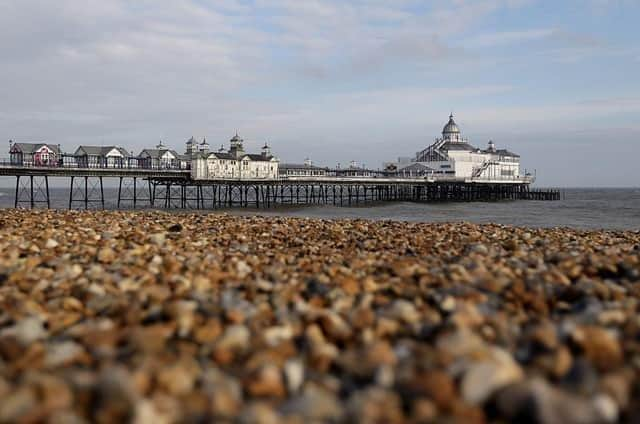Sussex beaches hit by "unprecedented" level of sewage dumping due to torrential November rain
and live on Freeview channel 276
Environmental campaign group SOS Whitstable said five months' worth of releases occurred in the Southern Water area in the first week of November – with sewage being pumped out into the sea 493 times in eight days along the south coast.
Campaigner Ed Acteson told the BBC: "This is an absolutely unprecedented level of sewage pollution.
Advertisement
Hide AdAdvertisement
Hide Ad"Legally they are allowed to do this in exceptional circumstances but this is not morally acceptable."


SOS Whitstable said it began to monitor data in summer 2021 from Southern Water's online Beachbuoy tool, which records sewage discharges.
In East Sussex, sewage has been dumped at St Leonards and Bexhill bathing sites in the last 24 hours, SOS Whitstable said.
In West Sussex, the environment group said sites at Littlehampton, Bognor Regis East, Pagham, Aldwick and Felpham had all been impacted by sewage dumping.
Advertisement
Hide AdAdvertisement
Hide AdSouthern Water said it accepted the campaign group's figures and stated that ‘unprecedented stormy weather’ had overwhelmed drains.
The water supplier said overflows were made up of up to 95% rainwater, after south-east England had experienced 89% of its average November rainfall so far this month.
HAVE YOU READ THIS?
A Southern Water spokesperson said: "We've experienced unprecedented stormy weather and flash flooding in early November, with more rain in the last week than we'd normally expect to see for the whole of the month.
"We are investing £2bn across five years - much of which will reduce the use of storm overflows, increase storage capacity and find ways to divert rain back to the environment naturally."